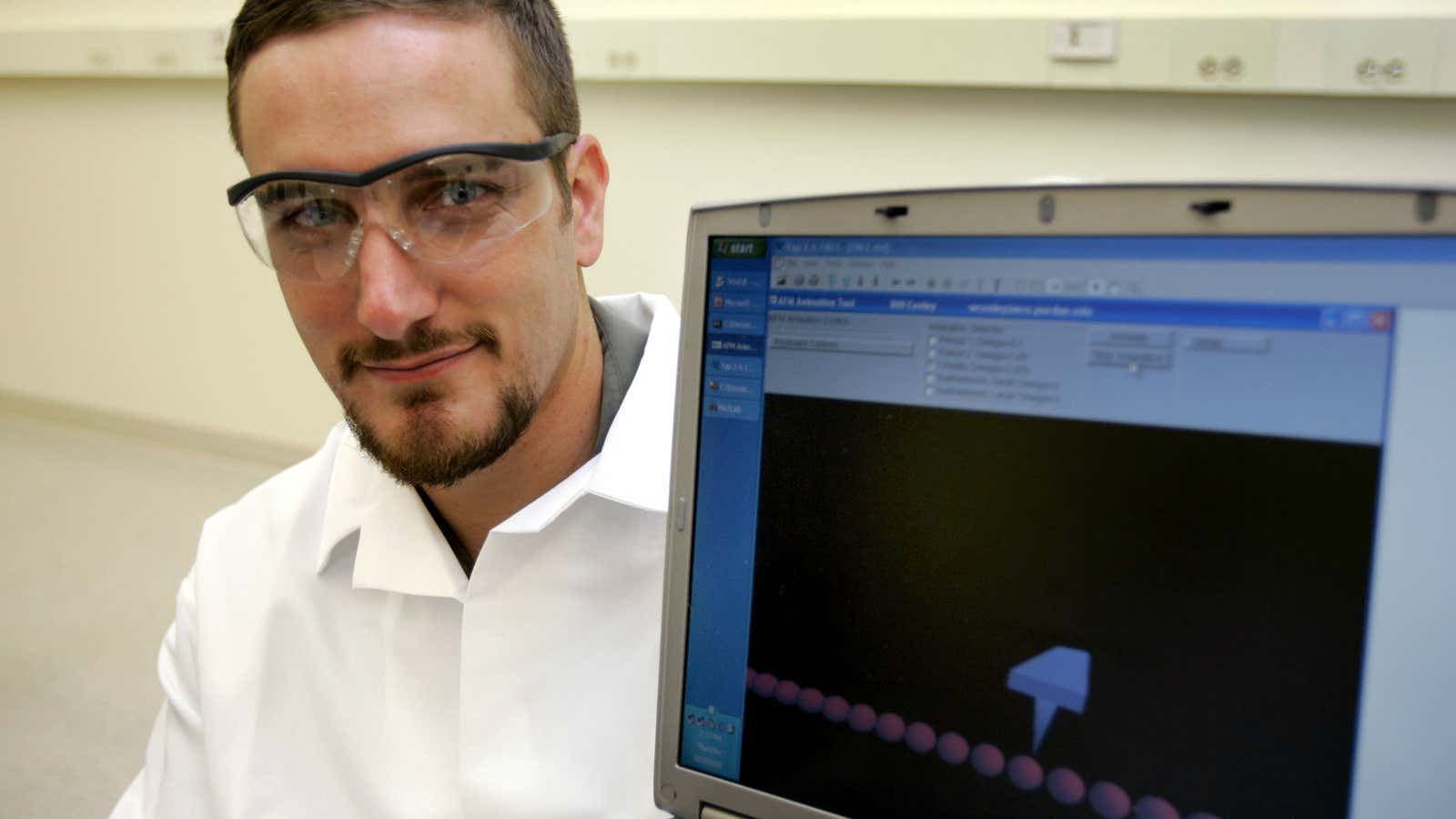A pivotal moment in your PhD is known as “the deposit.” It’s the last step in the process; the physical submission of a successfully defended dissertation. After six years you’d think I would have been elated, but instead I felt awful. So did the French literature PhD sitting next to me. Neither of us were graduating with jobs.
His status was more common in his field; humanities PhDs face a brutal job market. That’s not normally true in economics because demand from industry and government ensure just about everyone has a job when they finish. I was an odd case because, much to the horror of my committee, I had a late realization that I wanted to write. I was a grim no-job-PhD statistic, but that was mostly my fault. A few months later, a venerable magazine took me in. Months after that a famous financial economist found my dissertation and asked me to work with him, turning my paper into a financial product. Despite an inauspicious start, I always considered my post-PhD career a good outcome. I’ve had satisfying, stimulating jobs and still use my dissertation research.
I was very lucky and in an in-demand field but I am not sure how my French literature PhD friend fared. It seems our stories aren’t the exception. This latest Survey of Earned Doctorates found that more PhDs than ever are graduating without jobs and have become more likely to take low-paying post-doctoral positions. That may be why the Daily Beast’s Megan McArdle recently discouraged anyone from doing a PhD in any field, especially the humanities. Humanities job prospects were always dim. There are more graduate students than academic jobs and their research often doesn’t have direct application to industry or government work. McArdle suspects having a PhD can even hurt you in the non-academic job market.
I agree getting the first job out of graduate school can be hard, especially when your field does not have obvious direct applications. But many PhDs thrive once they get their foot in the door. Besides, it’s supposed to be different for scientists and quants. There’s a perception that we have a shortage of scientists and they should have no problems getting work. So it’s surprising that the survey found that more scientists and engineers are also graduating without jobs and wind up in poorly paid post-docs. This leads the Atlantic’s Jordan Weissmann to speculate that we may have a glut, rather than a shortage, of scientists. But that’s not necessarily true.
Science PhDs often must do post-docs, a mentored , short-term research position, because their research is more expensive to conduct than most research in the humanities or social sciences. You can’t get a professorship without a portfolio of independent research. Funding a lab takes lots of grant money that is impossible to get when you’re a graduate student with little or no research experience. Doctoral candidates in the sciences often work on their advisors’ ideas and learn how to be independent researchers during their post-doc phase. The increase in post-docs or multiple post-docs before a professorship may reflect that grant funding has gotten scarce or research more expensive. Or, as the report speculates, that some science professors are using their students as cheap labor instead of training them to be independent researchers.
You could argue that if there really were a scientist shortage than the non-academic market would offer such great alternatives that no one would bother with low-paid post docs. But if you’re motivated to do a PhD in the first place, there’s a good chance your ultimate career goal is to be a professor. That is probably why so many scientists are opting for low-paid post-docs instead of industry jobs. Taking a post-doc does not reflect a lack of other job options; it’s increasingly the normal academic track.
Of course some, like me, decide to leave academia. It’s interesting that the study found that more scientists graduate with no job at all, but it’s a stretch to assume that means there’s no demand for scientists. In my experience, academic departments are pretty clueless and unmotivated to help their students find non-academic jobs. After half a decade ensconced in academia, it takes time to make that transition and find the right fit. As Weissman points out, the study only looked at job status at graduation. Another study he cited looked at biological science PhDs a few years out of graduate school and among that population industry employment has steadily increased.
The survey says something about grant funding, the nature of research and the state of academia. But it doesn’t prove that there are too many scientists or that their skills aren’t valued on the labor market. A PhD, in any field, gives you critical thinking and creative problem solving skills which are more valuable than ever.
